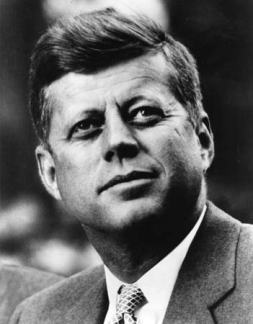In explaining the importance of a $700 Billion dollar plan to shore up the economy, Secretary of the Treasury Henry Paulson said in an interview that, in affect …the American people don’t understand this.

Mr. Paulson is a finance guy, not an education guy.
Moments before the House was due to vote on a very complex and highly contentious bill, Speaker Pelosi stands at the podium and says the following:
“$700 billion. A staggering number. But only a part of the cost of the failed Bush economic policies to our country. Policies that were built on budget recklessness…”
And it was that moment that was played and replayed on all the news programs. The result: “See, she’s just as partisan as the rest of them!”
Mr. Paulson has the excuse of being a finance guy, but the Speaker of the House of Representatives carries the responsibility to lead her colleagues in a well-reasoned debate, to bring about consensus, to solve not only a critical economic crisis but a crisis of trust and confidence in our elected officials.
In short, Speaker Pelosi needs to put statesmanship before partisanship.
Returning home from Boston, I spent time re-reading several speeches by President Kennedy whose words could educate as well as motivate.
While watching a documentary on the Cuban Missile Crisis, I was reminded how Kennedy carefully explained the crisis to the American people. He then describes his plan to deal with the crisis in a straight-forward, unambiguous manner, then ends with this:
“The path we have chosen for the present is full of hazards, as all paths are – but it is the one most consistent with our character and courage as a nation and our commitments around the world… Our goal is not the victory of might, but the vindication of right – not peace at the expense of freedom, but both peace and freedom, here in this hemisphere, and, we hope, around the world. God willing, that goal will be achieved.”
At another critical time in our nation’s history, Kennedy tells us that in spite of the inherent dangers we face, we will stand together to meet those dangers with character and courage. He then, takes us through the storm to see a future not gained by might but by right action that will hopefully lead to peace.
He is neither arrogant nor conciliatory. He’s not fearful, he’s hopeful. He’s not a Democratic president, he’s a statesman clearly and calmly explaining how we will get through this.
In the current economic crisis, the likes of which the country has never seen, the current president does little to explain much less inspire. Instead, Mr. Bush walks out of his office grim-faced and clearly scripted to say:
“If our nation continues on this course the economic damage will be painful and lasting.”
When Congress votes the bill down, Mr. Bush says, “I was disappointed in the vote with the United States Congress…”
And, in what sounds like a warning, Mr. Bush adds, “Congress must act.”
Instead of leadership we get a deeply pained and poorly spoken Chief Executive who seems tense and remote rather than calm and reasoned.
In a 1962 address at the University of California at Berkeley, Kennedy said, “In a time of turbulence and change, it is more true than ever that knowledge is power… Leadership and learning are indispensable to each other.”
Regarding the business of politics, Kennedy made clear, “Let us not seek the Republican answer or the Democratic answer but the right answer.”
That is statesmanship. And right now, our country needs more statesmen than Republicans or Democrats.
Comments










